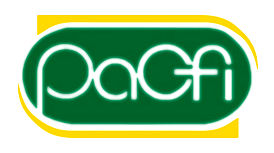PACFI began their annual funding of CF research in the early 1990’s. It was important to look for progressive researchers who were not heavily funded by the National Institutes of Health or the CF Foundation because PACFI believed there were many researchers doing important work who were not receiving needed funds.
For example, PACFI has funded research on oral glutathione, an anti-oxidant, for many years and the organization was credited with this support in a 2015 research article in the Journal of Pediatric Gastroenterology and Nutrition. The national CF Foundation is considering further research in this area, and it is hoped that further studies will prove the efficacy and cost effectiveness of oral glutathione as a long term beneficial treatment for CF.
PACFI received the President’s Award in 2010 from the University of Minnesota for many years of funding cystic fibrosis-related diabetes (CFRD) research. The University has one of the best CF Care Centers in the country and has a collaborative relationship with the world-famous Mayo Clinic.
PACFI has also supported CF research at Hahnemann University, University of Pennsylvania, University of Pittsburgh, University of Vermont, University of California at San Francisco, University of Virginia, and Michigan State University.
With the inception of the Million Dollar Bear campaign and Burke’s Tour in 1997-98 along with donations and fundraiser monies, PACFI has allocated over $700,000 to CF researchers.
PACFI Research Award Form
PACFI provides "seed money" to enable researchers to prove their hypothesis and later apply for larger grants to the National Institutes of Health, the Cystic Fibrosis Foundation, or another funding organization.
PACFI generally receives several funding requests annually, and the amounts awarded are generally in the $10,000 to $30,000 range.
We (PACFI board members) will notify each applicant of our funding decision no later than December 20th.
Thank you for your interest in wanting to secure better treatments and an eventual cure for CF!
If you're interested in PACFI funding, please submit the following information no later than November 15th:
- Submit a summary of your research in this current year and what you plan to accomplish in the coming year.
- Include a list of any recently published articles or presentations that pertain to your research efforts.
- Include a list of materials needed and staff needed along approximate costs.
- Submit your information to bobderrselinsgrove@gmail.com or by snail mail to Bob Derr, 410 Ninth Street, Selinsgrove, PA 17870

